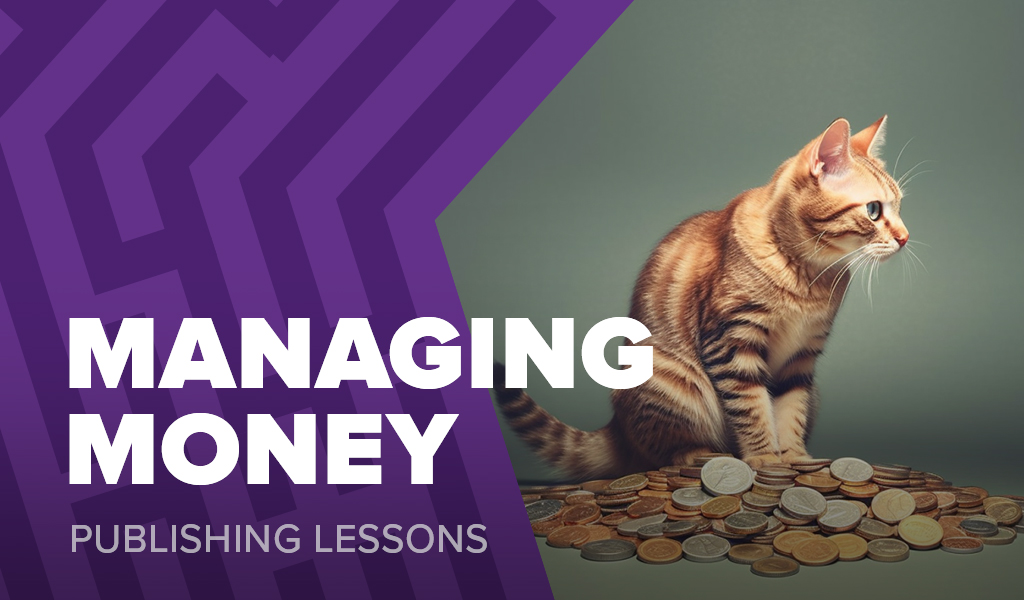Managing your money

If you want to become a publisher then one of the most important lessons you need to learn is how to manage your money. All too often a moment comes that can be the difference between being a healthy business and a struggling one, and people don’t always make the right decision.
So far in 2023 I’ve seen 3 publishers permanently shut their doors due to mis management of funds and several others who are struggling to tip the scales back in their favour. Let’s take a look at how to avoid these bad situations and put some strong foundations in place from day 1.
Know your pricing
You should never sell a game before you know all the costs involved, whether this be to distributors or crowdfunders, know your numbers first.
Team. You should have a full understanding of what artwork, writing, graphic design, sculpting and other tasks remain and have costs assigned to each task.
Manufacturing. You should have quotes from your chosen manufacturer that include all components, including any extras you may have for promotional purposes such as stretch goals and promo cards.
Freight shipping. You should have quotes from your chosen freight coordinator, or if you are doing it yourself you should know the current pricing trends.
Direct shipping. You should create a calculator in Excel or similar tool to estimate your final shipping costs. Your fulfilment partners can give you costs per package size to each country, your manufacturer can help with estimating the final weight, and you can predict where your backers are from, or know your target customers. With this you can calculate your average cost per backer and overall shipping costs for all backers.
Any other costs you may have need to be considered and included, ask yourself what needs to happen to get this game into someones hands and cover every step required to make that happen.
Include contingency
I never define my price as an exact cost until all bills are paid, up until that point you should be working with a range. I use the quoted, calculated prices as my lower range and then added contingency on top based on the activity.
Team. I only include a 5% contingency for team costs as the vast majority of work is complete by the time I come to sell the game and the scope is finalised. The more work you have left to do, the higher this number should be.
Manufacturing. I keep this to 10% as I’ve been through the process a number of times and these days I never change the requirements after getting the final quote unless something drastic happens. If your newer to the process, the requirements may change, or you’re creating more challenging games, this should to be higher.
Freight shipping. This is currently the hardest one to predict as over the past years we’ve seen these prices jump up and then drop by 600%. However, if you have all your numbers correct and are working with a healthy profit margin, a big jump in freight shipping should just be annoying rather than problematic. Afterall, it is often the cheapest cost per unit part of the process. At the moment I work on a 50% contingency for this, and have been lowering it by 10% every few months as the prices settle.
Direct shipping. For crowdfunders this is likely going to be the most expensive part of the project and it is also the hardest to get right. While a manufacturer will give you a final cost that wont change, prior to launching a campaign, fulfilment companies will give you current prices which will absolutely change by the time you come to delivering. Based on the changes during the past 2 years, I now work on a 15% contingency for shipping that is under $30 per backer, and a 25% contingency for shipping that is over. I calculate this on a per tier reward, per country basis, rather than on the overall cost, and this is per year, so if fulfillment will be more than 12 months then I’d apply this twice.
Once I have all my prices with contingency added, I also add an additional 10% to the total amount to cover anything I may have missed or not considered.
In the past this included things like costs for extra shipping destinations, increase in cost for pallets, additional safety testing costs, damaged products, and replacements.
Big numbers, big spending
Managing your money isn’t just about planning and getting your costs right, it’s certainly a big part of it but equally important is not rushing to spend your money.
If you’ve just run a successful Kickstarter and made hundreds of thousands of dollars, that doesn’t mean you should immediately be hiring a team of staff and rushing to get an office. It is very easy to think, well based on my calculations I’ll make x% profit once this delivers and therefor can start spending that now – You need to wait!
Apart from the absolute essentials required to deliver your project, you should refrain from purchasing anything extra until the game is in people’s hands and you know the final profit levels.
Even then, you need to consider what spending that money will mean.
Let’s assume you went to launch a Kickstarter and hoped for 1,000 backers and $75,000. You’ve put a plan in place to achieve those numbers and it has no doubt been hardwork and very stressful. Yet, that work has paid off and you have been lucky enough to get 5,000 backers and $375,000!
You’ve made substantially more money than you had planned and you’re thinking you have enough to hire 2 people to work full time alongside you. Perhaps that’s true. The problem is the second you make that decision you are also stating that moving forward all your projects now need to achieve $375,000 and your minimum goal is 5 times harder than it was last time.
Businesses typically want to grow and make more money, and it’s healthy to increase your targets and reach for the stars. However, you shouldn’t build those increased targets into your minimums, making them a requirement for your business to continue operating.
By all means chase your dreams, but never turn your dreams into a clock that is counting down to your downfall.
Frank West
Frank West is a gamer and designer based in Bristol, UK. He published his first board game, The City of Kings, in 2018 and now works on other games and organising events in the local area. His goal? To design and publish games focusing on immersive themes, fun mechanics and beautiful components. If you have any questions or would just like a chat, feel free to get in touch at any time!

